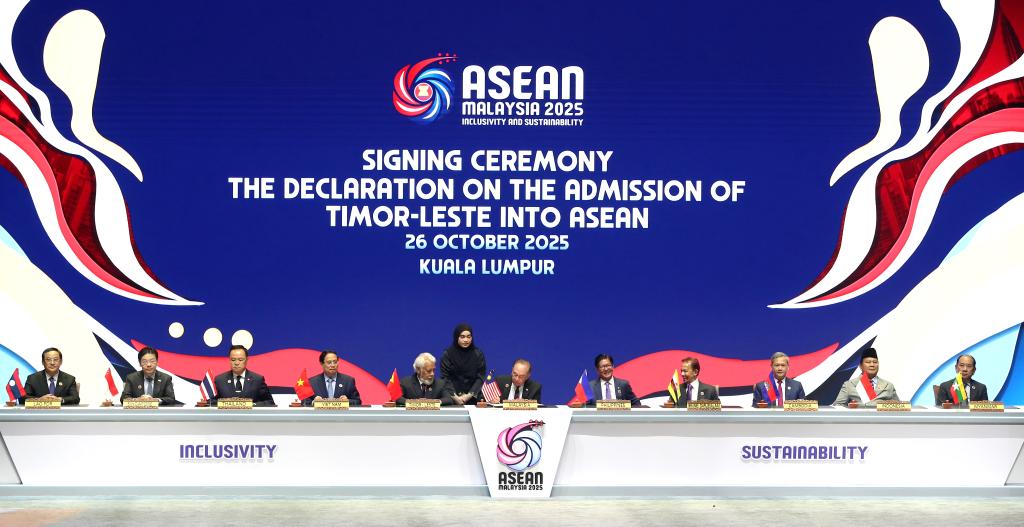There’s no law expressly obligating Kenyans to revere president, legal experts say

Evans Ogada, a specialist in constitutional and administrative law litigation also avers that there is no law requiring citizens to respect the president.
The raging debate over abductions and enforced disappearances in the wake of online criticisms against President William Ruto and his administration has ignited an examination of what the law says about respect for the head of state.
On Saturday, Ruto challenged parents across the country to take responsibility and take care of their children while promising to end the spate of worrying abductions which many link to criticising against him and his administration.
More To Read
- Kenya appoints Severine Luyali as new Chief of Protocol
- Court told President Ruto not complainant in X post case against David Mokaya
- President Ruto outlines four Raila-inspired pillars to drive Kenya’s growth
- Raila Odinga’s life offers five key lessons to guide Kenya’s future - President Ruto
- Amnesty flags arrests, abductions and killings ahead of Tanzania’s 2025 elections
- Raila was a political engineer, and I was his student- Ruto
While promising to curb the cases of abductions and enforced disappearances, Ruto said while the government will do its part, parents must also come out and play their roles.
"I want to ask every parent to take care of their children. These children are God-given to us and we must take responsibility. We are going to stop the abductions so that our youth can live peacefully and my government is going to do its part to ensure even the youth are responsible enough so that together we build Kenya," said Ruto.
Politicians allied to President Ruto have been calling on Kenyans to respect him.
National Assembly Majority Leader Kimani Ichung’wah and his Minority Leader Junet Mohammed on Friday challenged authorities to arrest those misusing the internet in line with the provisions of the Computer Misuse and Cybercrimes Act, in light of the recent wave of abductions in Kenya.
"The ongoing behaviour and trend by Kenyans to abuse people through the internet by posting images such as the ones we have been seeing lately is very depressing," Junet stated.
Individuals who have allegedly been abducted by people believed to be officers from the Directorate of Criminal Investigations (DCI) are said to have shared images generated through artificial intelligence (AI), irking Ruto's administration.
What does the law however say about citizens expressing their dislike for the president?
The Eastleigh Voice spoke to three senior legal experts on this.
According to Bobby Mkangi, who served as a commissioner in the nine-member Committee of Experts for Constitutional Review (CoE) that delivered the Constitution of Kenya in 2010, there is no law whatsoever that requires citizens to respect the president.
Lèse-majesté laws hangover
"There is no law that demands that the president or anyone should be 'liked', or 'loved'. In that regard, there is no law that prohibits detesting, or 'hating' something or someone. Akin to liking or loving, of which there are no prohibitions against expressing the same publicly, 'hate' is a preference," explains Mkangi.
Evans Ogada, a specialist in constitutional and administrative law litigation also avers that there is no law requiring citizens to respect the president.
"The hangover around reverence for a president relates to Lèse-majesté laws, which in our case was declared unconstitutional," says Ogada.
Lèse-majesté is a crime that defames or offends the dignity of a state or its ruling head of state. The term comes from medieval French, and it meant "a crime against the Crown".
Ogada further explains that hating the president is a democratic choice and should not be construed as hating the country.
"That is democracy. Unless it can be proven that what the citizen is saying is outside what is allowed by the Constitution and the law, there is nothing wrong."
On abductions, he notes that they are against the law and the Constitution and that if anyone is suspected of any crime, the person should be arrested so that he or she can be taken to court. In his view, the issue of preaching morality is not for any politician to do.
Lawyer Willis Otieno on his part explains that respect is earned and cannot be decreed in law. He too insists that the political class should not use force to make citizens respect them.
Otieno is an expert in litigation, governance, public law, elections, political processes, and constitutional and administrative law.
Top Stories Today
















































